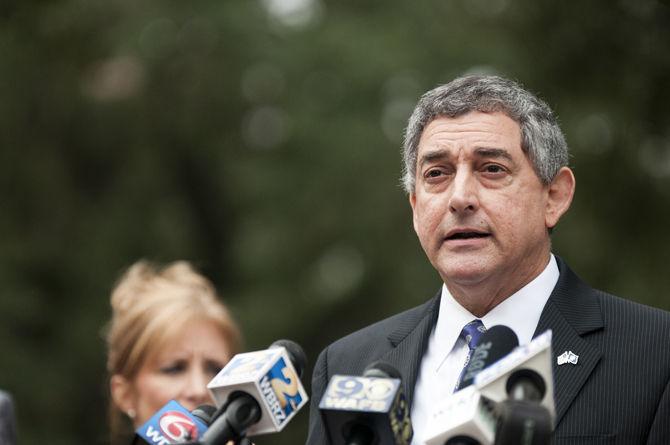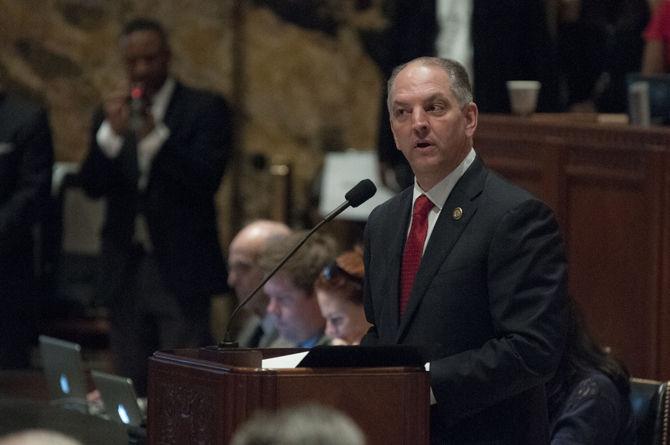Discussions on how to fully fund higher education forayed into overarching budget changes in a Senate committee Monday as another special session looms over the Legislature and the state remains roughly $600 million short for next year.
Commissioner of Administration Jay Dardenne, a Republican who ran against Gov. John Bel Edwards in last year’s primary election, discussed savings to Medicaid and Edwards’ budget for the 2016-2017 fiscal year, which cuts higher education by six percent. Colleges and universities were previously told to expect double that number after taking a $28 million mid-year cut from TOPS.
“Why are we continuing to pick on higher education and healthcare?” asked Sen. Bret Allain, R – Franklin. “Why can’t we spread it out a bit?”
Higher education and healthcare have taken the brunt of cuts in recent years as the state ran into recurring shortfalls, though some tax increases in the recent special session helped mitigate cuts deemed “catastrophic” to colleges and universities.
Edwards is expected to call another special session immediately following the current session to raise more revenue, and legislators have their eyes on TOPS — the ever-popular tuition-paying program which is $180 million short for the next year. If no changes are made, roughly 34,500 students would lose the scholarship for next year as the ACT requirement would be raised to a score of 26, with students’ family incomes factored in.
While the House budget chairman, Rep. Cameron Henry, R-Metairie, has vowed to find the money for TOPS regardless of new revenue, on Monday senators said they want big-ticket changes.
“[Edwards’ budget] doesn’t do anything about making LSU a true flagship institution,” Sen. Conrad Appel, R – Metairie, said. “It just keeps us alive.”
Appel, who sits on the Senate Education Committee, said the Legislature should look at how higher education is structured and move away from the short-term budget fixes the state has used in the recent past.
But higher education leaders have long said colleges and universities have become as efficient as possible in the wake of large-scale budget cuts, and the budget for higher education is down to a proposed $705 million for the next fiscal year, with colleges already having cut 5,000 faculty and staff positions over the last few years.
“We may need to add more dollars for [higher education and healthcare],” said Sen. Jim Fannin, R – Jonesboro.
Dardenne fielded questions about where Edwards’ administration plans to find more money in another special session, but said the Legislature may have to take a shot in the dark at changing the tax code to become more in line with long-term changes, which are still undecided.
When senators asked if the price of oil would lessen the state’s fiscal troubles, Dardenne said, “my inclination is to be very conservative.”









